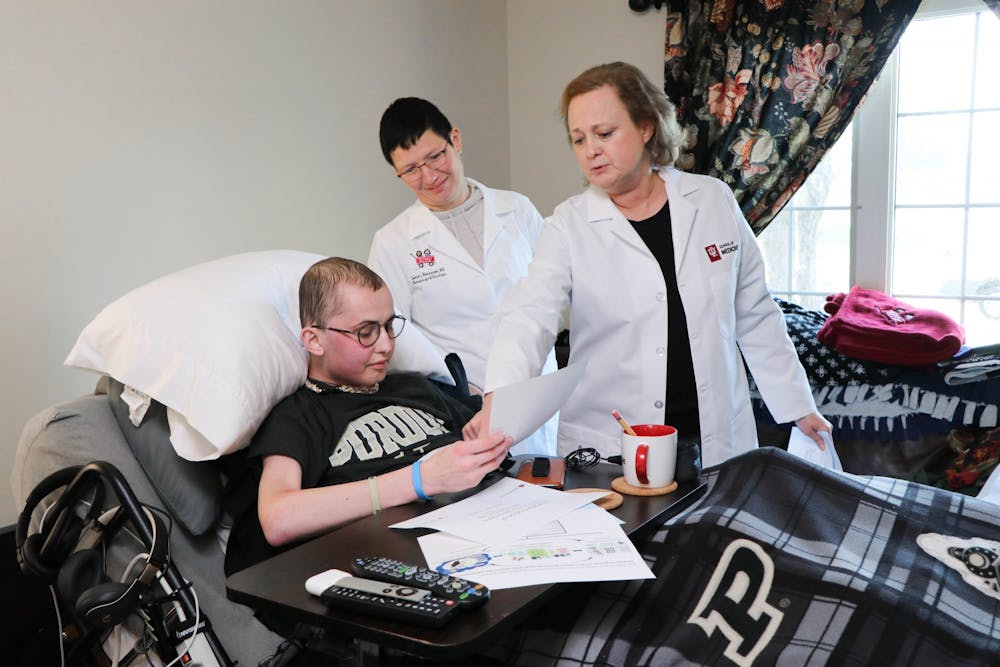Tyler Trent, a Purdue graduate and Boilermaker superfan, died Jan. 1, 2019, after his third relapse of osteosarcoma, a rare form of bone cancer. Before his death, Trent donated several tumor samples to cancer researchers at the IU School of Medicine.
He was one of the first patients at Riley Children’s Hospital to donate his cancer cells for research and nationally advocated for others to do the same, according to the Indianapolis Star.
“Tyler has truly left us a legacy,” associate professor Karen Pollok said in a press release. “While we still have much work to do, we are hopeful that new therapies for osteosarcoma will be possible in the near future.”
Pollok leads a team of researchers at the IU School of Medicine who discovered a unique signature in Trent’s cancer cells called MYC-RAD21, according to an IU School of Medicine press release. The signature has been found in tumors with the tendency to regrow.
Two drugs can block the effects of this signature, Pollok said in the release. She said the individual drugs can slow the growth of tumors, but when the drugs are used together they can block the growth of the tumors.
Pollok and her team tested the drug therapy during a four-week treatment, according to the release. The tumors responded positively to the therapy but started to grow again after the treatment stopped. Pollok said her team is pleased with the results so far.
Unlike traditional chemotherapy or radiation treatments, the drug therapy is not toxic to the body and does not cause side effects like dramatic weight loss, according to the research data.
Finding a cure for pediatric sarcomas, including osteosarcoma like Trent’s, is one focus of the IU Grand Challenges Precision Health Initiative. This research is being conducted at the Herman B Wells Center for Pediatric Research at the IU School of Medicine.
The next step for researchers is to define how the tumors adapt to treatment and look for ways to optimize the effects of the combination drug therapy, according to the release.




